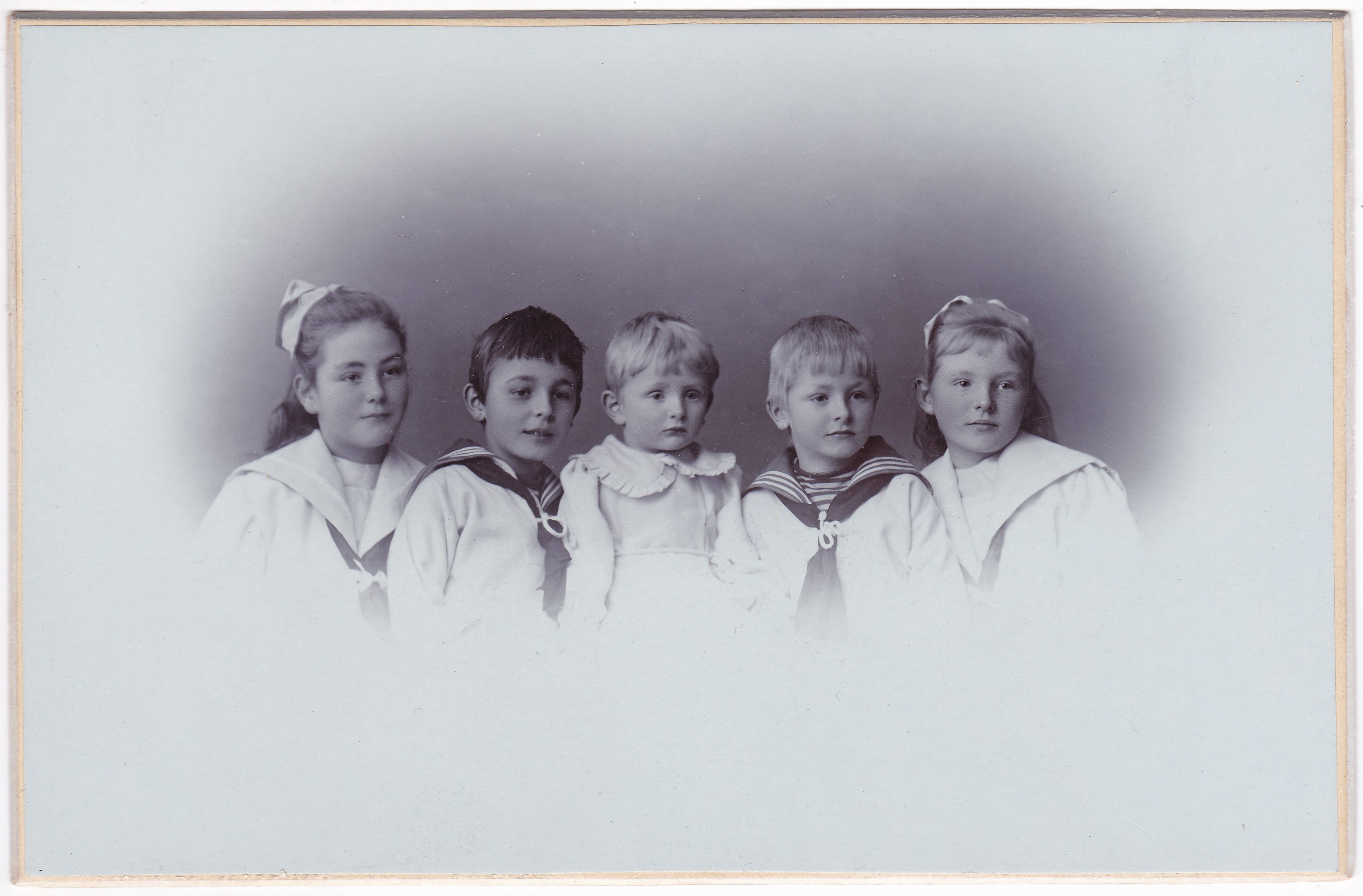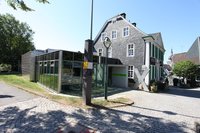Fünf Kinder des Professors Max Hofmeier, ein Freund und Kollege von Wilhelm Conrad Röntgen in Würzburg. Fünf Kinder des Professors Max Hofmeier, ein Freund und Kollege von Wilhelm Conrad Röntgen in Würzburg. Von links nach rechts: Maria Hofmeier (*21.07.1888 Giessen), Karl Hofmeier (*27.02.1891 Würzburg), Walter Hofmeier (*13.06.1897 Würzburg), Friedrich Johannes Walter (Fritz) Hofmeier (*09.06.1893 Würzburg; +10.07.1918 bei Moreuil) und Elisabeth Hofmeier (*27.07.1889 Würzburg).
Gruppenportrait (Bruststück) im Viertelprofil
en




























